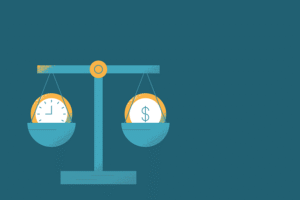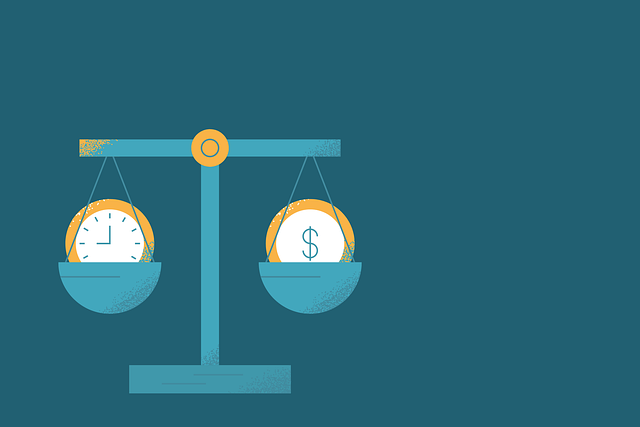Insurance adjusters usually reach out within 24-72 hours after a car accident report. Their swift response doesn’t mean they want to help you. They race to make contact before you can properly evaluate your damages or speak with a lawyer.
Your best interests don’t drive insurance companies – their profit margins do. Adjusters often rush to settle claims right after accidents. They know you haven’t grasped your injury’s full extent or calculated total damages yet. The right approach to conversations with insurance adjusters can transform your claim’s outcome. Research proves that claimants who get professional help often receive higher settlements, even after paying legal fees.
This piece will help you direct these tough conversations better. Your statements to an insurance adjuster can shape your claim’s success, making preparation vital. We’ll outline the exact words to use and avoid. This ensures you safeguard your rights and get fair compensation after your car accident.
Table of Contents
ToggleUnderstanding the Role of Insurance Adjusters
A car crash leads to an insurance claim, and that’s when an insurance adjuster steps in. Knowing what they really do might change the way you talk to them.
What does an insurance adjuster do?
Insurance adjusters work as main investigators for insurance companies. They gather information after an accident by checking police reports, getting witness statements, and looking at vehicle damage. Their job includes checking if your claim is valid, figuring out policy coverage, and deciding how much the insurance company should pay.
These adjusters seem helpful and friendly at first. Their main job is to protect the insurance company’s money rather than getting you fair compensation. They carefully record everything about your claim, from physical damage to your medical condition. This complete file determines your settlement amount.
Why they are not on your side
These adjusters might act friendly, but they work for insurance companies. Their success depends on paying out less money for claims. Insurance companies take big premiums but hope you never file claims. Your claim submission makes them try to pay less or deny it completely.
Most adjusters handle over 100 claims simultaneously. Your specific case can’t get their full attention. On top of that, they use tricks to reduce settlements like:
- Making casual conversation to get you to say something that hurts your claim
- Acting rushed to make you nervous
- Pushing their “preferred” doctors or repair shops who keep costs low
- Giving quick but low settlements before you know how bad your injuries are
How adjusters evaluate claims
Adjusters use specific steps to keep company payouts low. They look at liability factors to figure out who’s at fault. North Carolina law says being found just 1% at fault could stop you from getting any money.
These adjusters inspect your medical records and look for gaps in treatment that might show your injuries aren’t bad. They check vehicle damage photos and often say small damage means you can’t be badly hurt. Your pre-existing conditions give them a chance to blame your current problems on old issues instead of the accident.
Your words become evidence they can use against you during this review process. Something simple like saying “I feel okay” can hurt your claim’s value a lot.
How to Prepare Before the Call
Getting ready is your best defense when you talk to insurance adjusters. A few steps before your first call can make your position much stronger and help protect your claim.
Gather all accident-related documents
Getting organized shows adjusters you mean business about your claim. Right away, collect:
- The adjuster’s name, phone number, and email address, plus the insurance company they represent
- Police reports and accident scene photos
- Medical records and bills
- Witness statements and contact information
- Receipts for any accident-related expenses
- Vehicle damage photographs
A well-organized set of documents builds a strong foundation for your claim. This makes it harder for adjusters to dismiss or minimize what happened to you.
Review your insurance policy
Knowing what your policy covers makes a huge difference, but people often skip this step. Take time to get into your policy details, especially:
Coverage limits and exclusions directly shape the compensation you can receive. Most policyholders don’t look at their coverage regularly and miss important changes that could affect their claims. It’s worth mentioning that knowing your policy terms helps you speak confidently when discussing your claim with adjusters.
Consult a lawyer if possible
A conversation with an attorney before you contact an insurance adjuster gives you key benefits. A skilled lawyer can:
- Explain your legal options to get compensation
- Help gather important evidence that strengthens your case
- Keep you from saying things that might hurt your claim
- Show you how to handle the complex claims process
Even a quick chat with a lawyer can give you great strategies for talking to adjusters.
Keep a journal of your injuries and recovery
Start writing down everything right after the accident happens. Your journal becomes solid evidence for your claim, especially since insurance adjusters often test your memory over time to spot inconsistencies. Include:
These journal entries can help you remember details from later negotiations. They also show exactly how the accident changed your daily life. This kind of documentation really helps when you’re fighting to get fair compensation.
What to Say to an Insurance Adjuster
Your conversations with insurance adjusters can make or break your claim. You need to know what to say – and what not to say – to protect your interests after an accident.
Stick to simple facts only
Insurance adjusters need just the basic facts. Give them clear and concise statements about what happened. Share only essential details about the accident – date, time, location, and vehicles involved. Note that adjusters have training to get extra information that could hurt your claim. So don’t volunteer information they haven’t asked for.
Avoid discussing fault or injuries
Never try to guess who caused the accident or accept any blame. Even a hint about fault could damage your claim’s chances. You should also be careful when talking about injuries. Rather than giving injury details, just say: “I’m having my injuries evaluated by medical professionals” or “I would need to refer to my medical records for an accurate answer.” Then bring the conversation back to the basic facts. If you’re uninsured but weren’t at fault, what you say becomes even more critical – legal support services like ConsumerShield can help you understand how to protect your rights in these high-risk situations.
Politely decline recorded statements
Insurance adjusters often ask for recorded statements and claim they’re “routine” or “necessary” to process your claim. All the same, you have every right to refuse. You might say: “Thank you for your request, but I don’t feel it’s in my best interest to provide a recorded statement right now. I’d be happy to supply relevant documentation in writing.” These recorded statements could hurt your claim if they’re manipulated or taken out of context.
Ask for the adjuster’s contact details
Make sure you know who you’re talking to. Get the adjuster’s full name, direct phone number, email address, and their company’s mailing address. This information helps if you need to escalate problems or if your claim gets assigned to different adjusters. Keeping detailed records of all communications also helps maintain consistency throughout your claim.
What Not to Say to an Insurance Adjuster
Your words can become powerful evidence against you when you talk to insurance adjusters. The things you don’t say matter more than what you actually tell them.
Never admit fault or apologize
Simple apologies like “I’m sorry” can be taken as admissions of guilt. Insurance companies teach their adjusters to spot statements that suggest liability. Saying things like “I didn’t see them” or “I was distracted” can seriously affect your claim. Insurance adjusters use these statements to cut down or deny your compensation. The process of determining fault needs complex investigation – what you see at the accident scene might not match reality. You might think you were in part responsible, but don’t share this with the adjuster. It could reduce your compensation under comparative negligence rules.
Avoid saying ‘I feel fine’
The rush of adrenaline right after an accident often masks injuries. Saying “I’m okay” or “I don’t need a doctor” can come back to hurt your claim later. Many injuries like whiplash or internal trauma show up days after the crash. Adjusters will question your later medical claims if you’ve minimized your condition earlier. When asked about your condition, just say “I’m still being evaluated by medical professionals.”
Don’t speculate or guess
Stick to facts you know for sure. Don’t make guesses like “he may have been speeding” or “I think the light was yellow.” These assumptions often turn out wrong after investigation and damage your credibility. It’s better to say “I don’t know” or “I don’t recall” than makeup details.
Do not accept the first settlement offer
First settlement offers usually undervalue your claim substantially. Insurance companies hope you’ll take less money than you deserve because you’re desperate or uninformed. These offers rarely cover ongoing medical needs or non-economic damages like pain and suffering. The adjuster might make this offer sound final, but it’s just a negotiating tactic.
Don’t sign a medical release without review
Blanket medical authorizations let adjusters look through your entire medical history – not just accident-related records. Insurance companies often look for pre-existing conditions to link your current symptoms to past issues instead of the accident. Make sure to limit authorizations to records that relate specifically to your accident injuries and current treatment.
Conclusion
Your conversations with insurance adjusters can make a huge difference in your claim outcome. This piece shows these interactions need careful preparation and strategic communication. The adjuster works to minimize company payouts rather than maximize your compensation, which should change how you approach these discussions.
Note that what you don’t say matters more than what you do say. Sticking to simple facts, avoiding speculation about fault, and declining recorded statements protect your interests. You should never rush to accept the original settlement offers or sign blanket medical releases without proper review.
The stress after an accident is overwhelming without worrying about saying the wrong thing to an insurance adjuster. Notwithstanding that, the strategies outlined here will help you approach these conversations with confidence. Your position becomes substantially stronger when you take time to gather documentation, understand your policy, and consult with an attorney.
Insurance companies expect claimants to be unprepared and eager to settle quickly. Knowledge becomes your most powerful tool when dealing with adjusters. By doing this and being methodical in your communication, you improve your chances of receiving fair compensation that covers your damages and injuries.











